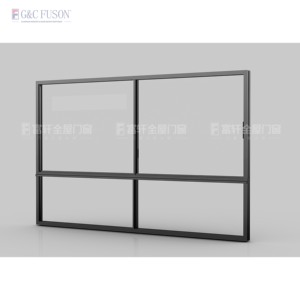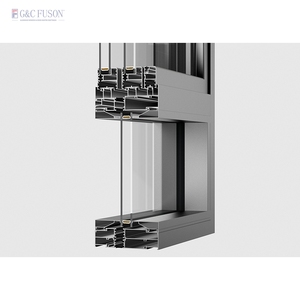(58230 products available)


































































































































































































































Bulletproof glass doors and windows are security measures that help prevent unauthorized access to important facilities and locations. They are ideal for use in areas with high traffic, such as banks, jewelry stores, and other commercial centers.
They are also an important part of security for government buildings, military zones, and any other location that needs to be protected from outside threats. These glass doors and windows are essential for protecting against bullets and other attacks.
Bulletproof glass doors and windows are not really bulletproof. They are known as bullet-resistant glass because they can resist and withstand bullets from certain types of guns and weapons. Different kinds of bullet-resistant glass are used for doors and windows in different places. Some are more thick and heavy than others.
There are two main ways that bullet-resistant glass is made. The first way is laminated glass. This glass has layers that make it hard for a bullet to go all the way through. The second way is polycarbonate glass. This glass is made from a special kind of plastic that is super strong and hard to break.
Bulletproof glass doors and windows are crucial in protecting people and property from gunfire. They are designed to allow light to pass through, maintaining visibility and natural light. Here are the features and functions of ballistic glass:
Transparency
Bulletproof glass is designed to be clear, ensuring visibility through it. This is important for security personnel, CCTV cameras, and anyone looking out the window.
Layers
Bullet resistant glass is made with layers of glass and polycarbonate. When a bullet hits it, the glass shatters but the inner layer absorbs the bullet's energy, preventing it from passing through. The layers also spread the bullet's impact, making it less likely to penetrate.
Thickness
Bulletproof glass is very thick. This thickness prevents bullets from going through. The thicker the glass, the more protection it offers against high-caliber rounds.
Clarity
Bulletproof glass maintains high clarity, ensuring that visibility is not compromised. This clarity is important for security personnel to see clearly through the glass.
UV Protection
Some types of bulletproof glass offer UV protection. This protects furniture and flooring from UV damage. The UV-blocking layer also helps to maintain privacy by preventing people outside from seeing inside.
Noise Reduction
Bulletproof glass can block out noise from outside. This helps to reduce distractions in offices or homes located near busy streets. The noise reduction feature also makes homes feel more private.
Protection from Debris
While they are mainly marketed as protection against bullets, bulletproof glass also protects people from flying debris. This includes glass shards from explosions or when regular windows break, as well as pieces of wood or metal that are blasted towards the window or door. The thickness and layering of bulletproof glass prevent sharp fragments from entering a room and injuring people.
Easy to Clean
Bulletproof glass is not only tough but also easy to clean. It resists scratches and dirt, so it stays clear for a long time. The surface is often treated to prevent smudges from fingerprints and makes washing it with regular glass cleaner simple.
Shock Absorption
Bulletproof glass can absorb shocks from sudden hits or high winds. It flexes slightly instead of breaking immediately. This shock absorption helps to protect the glass and maintain transparency for a longer period of time.
Bulletproof glass door and window systems are used in various applications where security, safety, and durability are paramount. Here are some common usage scenarios:
Commercial Building
Bulletproof glass systems are often used in the lobby, reception areas, and ground-floor windows of commercial buildings, especially those located in high-crime urban areas or regions with a history of political or corporate unrest. They provide a deterrent to potential intruders and can help protect employees and visitors.
High-Value Retail Stores
Jewelry stores, luxury goods retailers, and high-end electronic shops frequently install bulletproof glass doors and windows to safeguard their valuable merchandise from armed robberies and vandalism. The transparency and clarity of the glass allow customers to see products without compromising security.
Government Buildings
Embassies, consulates, and government offices often utilize bulletproof glass systems to protect sensitive information, personnel, and visitors. This is particularly important in areas with high threats or where diplomatic relations are delicate.
Banking Institutions
Banks and financial institutions rely on bulletproof glass for their teller counters, vault areas, and entrance doors. The glass provides a visible barrier between customers and bank personnel while still allowing for open communication.
Safe Rooms and Panic Rooms
In residential properties, safe rooms or panic rooms can be constructed with bulletproof glass doors and windows. These rooms serve as a secure hiding place in emergencies, such as home invasions or natural disasters.
Military and Law Enforcement Facilities
Bulletproof glass systems are crucial for protecting personnel and sensitive equipment in barracks, command centers, and military bases. They offer a shield against potential threats in high-stakes environments.
Critical Infrastructure
Bulletproof glass doors and windows protect essential facilities, such as power plants, water treatment facilities, and transportation hubs. This ensures the safety and continuity of services vital to communities.
Healthcare Institutions
Hospitals and clinics may use bulletproof glass in psychiatric units, emergency rooms, and high-security areas. It safeguards medical staff and patients in potentially volatile or high-risk situations.
High-Net-Worth Individuals
Wealthy families and individuals often invest in homes with bulletproof glass systems to protect against potential kidnapping or extortion attempts. These homes are usually located in gated communities or affluent neighborhoods.
When choosing the ideal glass and frame system for any project, it is important to consider the various factors that affect its performance and suitability for specific environments and applications.
Understanding the Threat Level
The first step in selecting a bullet-resistant glass system is determining the potential threat levels or risks. This assessment involves identifying the type, caliber, and energy levels of the bullets. It can also include the ballistic testing standards in the area where the glass will be installed.
This evaluation can further include the environmental factors and the specific requirements and needs of the space or location where the glass will be used. Understanding these factors allows for a more tailored and effective approach to selecting the appropriate ballistic glass.
Framing Options
Once the glass type has been determined, attention should be directed toward the framing options available. The frame plays a crucial role in the overall performance of the security glass system, as it bears the impact and distributes the force to the surrounding walls.
Considerations should include the material of the frame, its thickness, and its ability to withstand various ballistic threats. For optimal protection, choose frames specifically designed to work with bulletproof glass, ensuring a cohesive and effective security solution.
Consulting with Experts
When navigating the complexities of choosing a bullet-resistant glass system, consulting with industry experts is important. These professionals possess the knowledge and experience to guide through the selection process, ensuring an informed and effective decision.
They can provide valuable insights into the latest technologies, materials, and designs that meet specific security needs and requirements. Investing time in consulting with experts can ensure a comprehensive and effective approach to security.
Q1: What are the drawbacks of bulletproof glass?
A1: The main disadvantage of bulletproof glass is its price. It can be costly, depending on the protection level wanted. Bulletproof glass is also heavier than regular glass, which may require stronger frames or support structures.
Q2: How can bulletproof glass be kept clear?
A2: Keeping bulletproof glass looking good and maintaining clarity is as simple as using a soft cloth and mild detergent to clean it. Strong detergents, abrasive cleaners, or anything with ammonia should not be used, as these can damage the glass.
Q3: Is bulletproof glass unbreakable?
A3: Although bulletproof glass provides high protection against bullets, it is not unbreakable. It can still break under certain conditions, like extreme impact or pressure. However, the glass will not shatter or break into pieces, which is a major advantage of its use.
Q4: Does bulletproof glass reduce visibility?
A4: No, bulletproof glass does not reduce visibility. It offers high transparency, which ensures a clear view. The thickness of the glass may affect visibility, but the clarity offered by bulletproof glass will not be compromised.
Q5: What are the levels of bulletproof glass?
A5: Bulletproof glass levels refer to its ratings, which indicate its protective capabilities. The rating starts from level 1 to level 8, with each level offering protection from specific bullets and firearms. Level 1 protects against handguns, while level 8 protects against high-powered rifles.